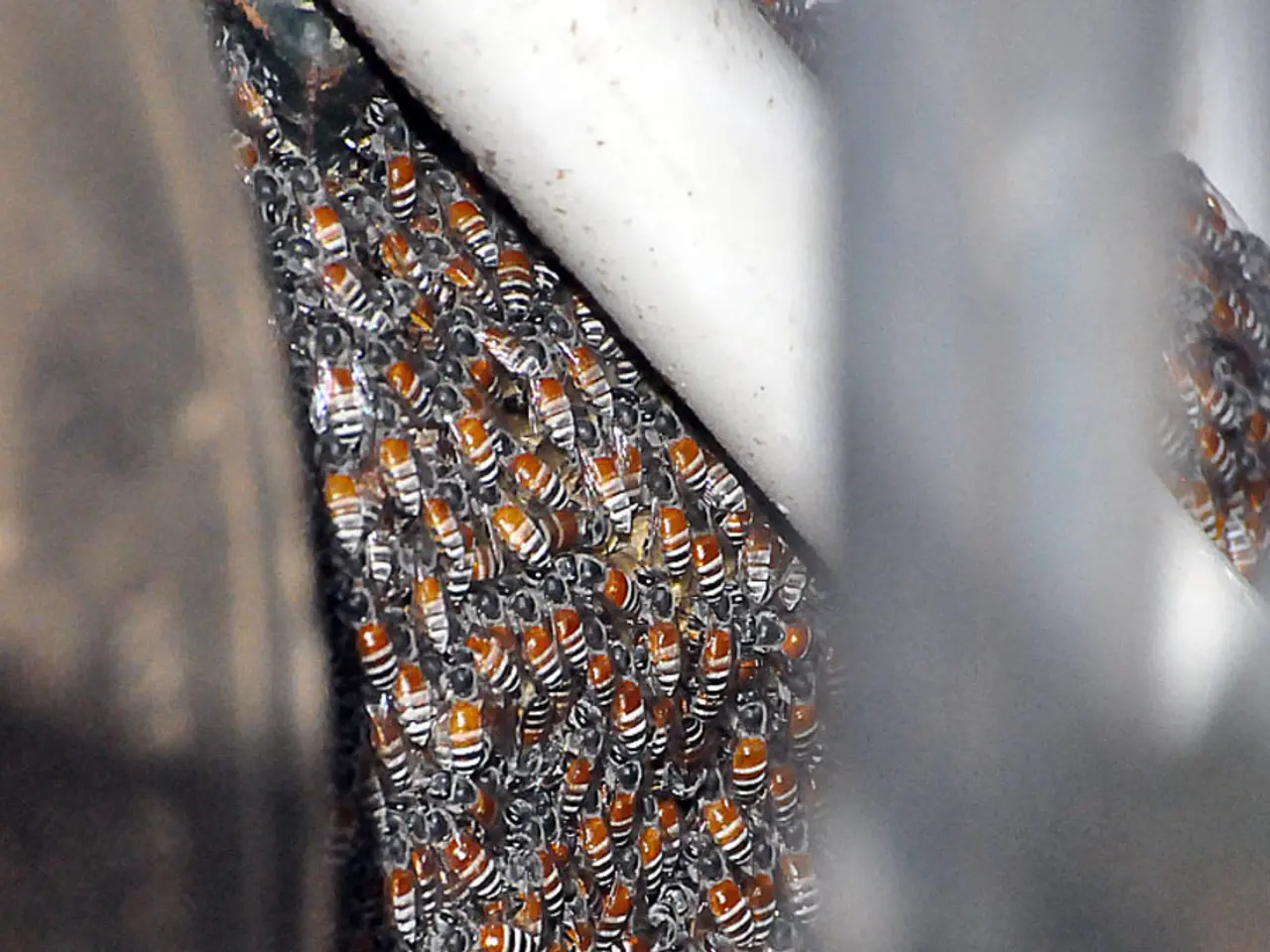Background Information: Honeybee Venom Treatment and Multiple Sclerosis
In the realm of alternative treatments for Multiple Sclerosis (MS), bee venom therapy (BVT) has gained attention due to its potential anti-inflammatory properties. BVT involves the use of live bee stings or injections, with the aim of reducing inflammation and immune system dysregulation in MS.
Research suggests that certain compounds in bee venom, such as melittin and adolapin, may help reduce inflammation and pain. The combination of these ingredients is believed to stimulate the body to release natural healing compounds.
While the evidence supporting the effectiveness of BVT for MS remains anecdotal, thousands of MS patients in the U.S. have adopted this approach as an alternative to traditional treatments. However, it's important to note that only about 50 U.S. physicians use BVT to treat MS or other diseases.
The Multiple Sclerosis Association of America is funding a one-year preliminary study on BVT conducted by Georgetown University. This study aims to further explore BVT's potential as a treatment for MS.
However, the current state of research on BVT for MS is preliminary, and robust clinical trials are still lacking. The risks associated with BVT, including allergic reactions and anaphylaxis, highlight the need for careful clinical evaluation.
Research is ongoing to develop safer delivery systems for BVT, such as nanocomposites loaded with bee venom, which may improve therapeutic efficacy and reduce side effects. However, these are mostly at experimental or preclinical stages.
Recent neuroscience conference materials do not report major new clinical results on BVT and MS but note continued investigation on related neuropathic and inflammatory pain mechanisms where BVT might have an impact.
In sum, BVT remains an experimental approach for MS symptoms with encouraging but not yet conclusive evidence. Further rigorous clinical research is required to confirm its effectiveness and establish appropriate treatment protocols while ensuring safety.
It's also worth noting that self-administration of BVT by patients is a concern due to the lack of medical training among most practitioners and the risk of allergic reactions. Therefore, it's crucial to approach BVT with caution and consult a healthcare professional before starting any new treatment.
- In the field of medical-conditions related to neurological disorders, multiple sclerosis (MS) is a focus of ongoing research for potential alternative treatments, such as science-based therapies like bee venom therapy (BVT), which has shown promise due to its anti-inflammatory properties.
- Science suggests that compounds in bee venom, like melittin and adolapin, might aid in reducing inflammation and pain associated with health issues like MS, stimulating the body's natural healing processes.
- Although the evidence supporting BVT's effectiveness in managing MS is anecdotal, numerous MS patients in the U.S. are looking to this method as an alternative to traditional treatments, acknowledging its potential benefits.
- The Multiple Sclerosis Association of America is funding a preliminary one-year study on BVT conducted by Georgetown University to explore its potential as a possible treatment for MS while ensuring health and wellness for patients.
- Despite the preliminary nature of existing research on BVT for MS, the need for rigorous clinical trials is crucial to confirm its effectiveness, establish appropriate treatment protocols, and ensure safety, considering the risks associated with BVT, such as allergic reactions and anaphylaxis. It's vital for patients to approach BVT cautiously, consult healthcare professionals, and avoid self-administration due to the lack of medical training among most practitioners.




